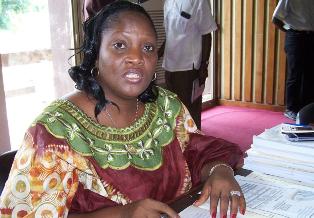Re-enforce hospital monitoring to track Ebola contacts
Liberia has, for the past week; again top the headlines of most of the major radio and television networks around- not because it remains one of the three West African countries worst hit by the deadly Ebola virus, but a nation whose citizens continue to export the virus to other countries. When Liberians at home and abroad thought the “Patrick Sawyer Ebola saga” in Nigeria would have now been a history, little did they know that another compatriot, Thomas Eric Duncan would have made news headline the world-over.
Duncan arrived in the U.S City of Dallas, Texas on September 20, and started feeling sick days later, following which he initially visited the Texas Health Presbyterian Hospital on September 25. He is reported to have been released with antibiotics, but went back three days later and was quickly isolated. The blood test last Tuesday confirmed he had Ebola- the first case of the deadly virus diagnosed on American soil. The high-risk list likely includes Duncan’s partner, Louise, her 13-year-old son and her two 20-something nephews. The four had been holed up in the apartment Duncan lived in before he was hospitalized.
They were relocated to an undisclosed place Friday, and will be required to stay there until October 19. Texas Health officials said last Saturday that about 10 people are at “higher risk” of catching Ebola after coming into contact with Duncan, but have shown no symptoms. The group is reported to be among 50 people being monitored daily, but according to the commissioner of the Texas Department of State Health Services, Dr. David Lakey, the other 40 are considered “low risk.”
According to the Director of the Centers for Disease Control and Prevention, Dr. Tom Frieden the nine people who had definite contact with the Ebola patient – including family members and health care professionals — have been monitored and show no symptoms or fevers, said Saturday. Liberian Health authorities had confirmed that prior to his departure, Thomas Eric Duncan, had had bodily contact with a lady he escorted to a local hospital in Monrovia, following which he travelled to the United States unknown to health authorities.
Duncan had lied on a passenger health screening form he filled in at the Roberts International Airport before boarding his SN Brussels 1241 flight that he had contact with bodily fluids while in Liberia, when he (Thomas) actually came in direct contact with a pregnant woman he personally escorted to a hospital in Monrovia before she died of Ebola.
Even though the Government of Liberia is already angered by Duncan’s embarrassing falsehood and plans to prosecute him, ‘if and only if he survives’, it must also re-enforce its tracing/monitoring mechanisms not only in the various communities, but medical facilities. By strengthening such mechanisms, especially at the various hospitals and clinics, it would easily track down people who come in direct contact with confirmed Ebola cases.
It is doubt that the poor ‘lesson’ learnt from the ‘Patrick Sawyer case’ at the St. Joseph Catholic Hospital in Congo Town may have resulted to the ‘Thomas Eric Duncan embarrassment’, and perhaps, there may be a recurrence if the Government of Liberia, through the Ministry of Health, fails to employ an effective and efficient tracking system at the various hospitals and clinics in Monrovia and elsewhere in the country.
[bsa_pro_ad_space id=1]




















